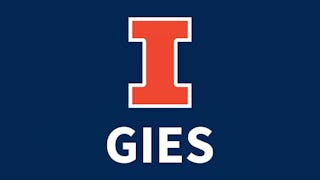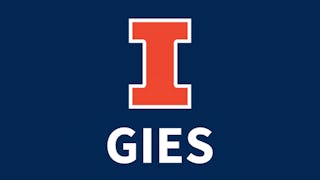Dieser Kurs befasst sich mit den staatlichen und lokalen Steuergesetzen, die heute in den Vereinigten Staaten vorherrschen. Der Kurs befasst sich mit der historischen Entwicklung der staatlichen und lokalen Besteuerung, der Steuerbefugnis der Bundesstaaten (und den Grenzen dieser Befugnis) sowie mit Planungsstrategien zur Minimierung der Auswirkungen der staatlichen und lokalen Besteuerung. Die Diskussionen werden sich auf Einkommenssteuern, Verkaufssteuern und Vermögenssteuern konzentrieren.



(38 Bewertungen)
Empfohlene Erfahrung
Was Sie lernen werden
Nennen Sie die gängigsten Arten von Steuern, die von staatlichen und lokalen Behörden erhoben werden.
Bestimmen Sie, wann ein Steuerzahler für verschiedene Arten von staatlichen und lokalen Steuern einen wesentlichen Nexus hat.
Analysieren Sie, wie eine natürliche oder juristische Person, die in mehreren Staaten tätig ist, geschäftliche und nicht-geschäftliche Einkünfte auf die einzelnen Staaten aufteilt und verteilt.
Erörterung von Steuerplanungstechniken zur Minimierung der staatlichen und lokalen Besteuerung.
Kompetenzen, die Sie erwerben
- Kategorie: Regulierung und Einhaltung von Gesetzen
- Kategorie: Einkommensteuer
- Kategorie: Umsatzsteuer
- Kategorie: Steuerplanung
- Kategorie: Finanzielle Verwaltung
- Kategorie: Grundstücke und Immobilien
- Kategorie: Einhaltung der Steuervorschriften
- Kategorie: Körperschaftssteuer
- Kategorie: Steuergesetze
Wichtige Details

Zu Ihrem LinkedIn-Profil hinzufügen
36 Aufgaben
Erfahren Sie, wie Mitarbeiter führender Unternehmen gefragte Kompetenzen erwerben.


Erwerben Sie ein Karrierezertifikat.
Fügen Sie diese Qualifikation zur Ihrem LinkedIn-Profil oder Ihrem Lebenslauf hinzu.
Teilen Sie es in den sozialen Medien und in Ihrer Leistungsbeurteilung.

In diesem Kurs gibt es 8 Module
In diesem Modul werden Sie mit Ihrem Dozenten, dem Kurs und mit der Besteuerung von mehreren Staaten im Allgemeinen bekannt gemacht. Insbesondere lernen Sie die gängigsten Steuerarten kennen, die von staatlichen und lokalen Regierungen verwendet werden, die Beschränkungen der Möglichkeiten eines Staates, Steuern zu erheben, und die aktuellen Herausforderungen für die Einnahmen der staatlichen und lokalen Regierungen.
Das ist alles enthalten
5 Videos8 Lektüren3 Aufgaben1 Diskussionsthema1 Plug-in
In diesem Modul werden wir die Beschränkungen besprechen, die die US-Verfassung und der Kongress der Steuerhoheit eines Staates auferlegen können. Unsere Diskussion wird sich hauptsächlich auf die Due Process Clause und die Commerce Clause konzentrieren. Außerdem werden wir uns die Anforderung der Commerce Clause, dass ein wesentlicher Zusammenhang bestehen muss, genauer ansehen.
Das ist alles enthalten
4 Videos2 Lektüren5 Aufgaben
In diesem Modul werden wir die Verkaufs- und Nutzungssteuern besprechen, bei denen es sich in der Regel um Verbrauchssteuern handelt, die auf Einzelhandelstransaktionen an den Endverbraucher eines Produkts erhoben werden. Wir werden auch einige der verschiedenen Ausnahmen von der Einzelhandelsumsatzsteuer besprechen, die die Staaten anbieten. Und wir werden uns die aktuelle Umsatzsteuerlandschaft nach dem jüngsten Urteil des U.S. Supreme Court in der Rechtssache Wayfair v. South Dakota ansehen.
Das ist alles enthalten
6 Videos7 Lektüren5 Aufgaben
In diesem Modul erfahren Sie, wie die Staaten das Einkommen besteuern. Wir werden die Geschichte und die Entwicklung der Einkommenssteuer in den einzelnen Staaten besprechen. Dann werden wir uns damit befassen, wie die Bundesstaaten den Internal Revenue Code als Ausgangspunkt für ihre eigenen Steuergesetze nutzen. Dann werden wir die beiden Grundlagen der staatlichen Besteuerung kennenlernen: Wohnsitz und Quelle. Und wir erfahren, wie Steuerzahler für Steuern, die sie an andere Staaten gezahlt haben, eine Gutschrift erhalten können.
Das ist alles enthalten
6 Videos7 Lektüren7 Aufgaben
In diesem Modul werden wir in die Einkommenssteuer für Unternehmen und ihre Geschichte eingeführt. Außerdem lernen wir das wichtigste Bundesgesetz zur Einkommensbesteuerung der Bundesstaaten kennen, das Public Law 86-272. Schließlich werden wir die typische Körperschaftssteuerformel durchgehen, die von den Bundesstaaten zur Berechnung des zu versteuernden Einkommens und der Steuer im Bundesstaat verwendet wird.
Das ist alles enthalten
4 Videos4 Lektüren3 Aufgaben
In diesem Modul werden wir die allgemeinen Regeln für die Aufteilung und Zuteilung besprechen. Dazu gehört die Unterscheidung zwischen geschäftlichem (d.h. umlagefähigem) und nicht geschäftlichem (d.h. umlagefähigem) Einkommen. Wir werden auch lernen, wie man die Aufteilungsfaktoren berechnet.
Das ist alles enthalten
3 Videos3 Lektüren4 Aufgaben
In diesem Modul lernen wir die verschiedenen Methoden der Einreichung von Steuererklärungen (getrennt, konsolidiert und kombiniert) kennen, die von den Staaten für Steuerzahler mit mehreren Körperschaften verwendet werden. Im Rahmen dieser Diskussion werden wir die Unitary Business Rule und die verfassungsrechtlichen Beschränkungen für bestimmte Methoden der Einreichung von Steuererklärungen erörtern. Anschließend werden wir uns mit speziellen Verteilungsfragen im Zusammenhang mit kombinierten (einheitlichen) Steuererklärungsmethoden befassen.
Das ist alles enthalten
4 Videos5 Lektüren5 Aufgaben
In diesem Modul lernen wir etwas über Grundsteuern. Wir werden die Geschichte und die Entwicklung der Grundsteuer besprechen. Wie die Grundsteuer berechnet wird. Und die allgemeinen verfassungsrechtlichen Beschränkungen für Grundsteuern.
Das ist alles enthalten
5 Videos5 Lektüren4 Aufgaben1 Diskussionsthema1 Plug-in
Dozent

Mehr von Business Essentials entdecken


University of Illinois Urbana-Champaign


University of Illinois Urbana-Champaign


Universiteit Leiden


University of Illinois Urbana-Champaign
Auf einen Abschluss hinarbeiten
Warum entscheiden sich Menschen für Coursera für ihre Karriere?




Bewertungen von Lernenden
38 Bewertungen
- 5 stars
92,10 %
- 4 stars
7,89 %
- 3 stars
0 %
- 2 stars
0 %
- 1 star
0 %
Zeigt 3 von 38 an
Geprüft am 24. Okt. 2021
This is a wonderful course to understanding taxes. The presentations are awesome! It would be awesome if it was accompanied with software training such as Vertex. Thank you, JoAnn

Neue Karrieremöglichkeiten mit Coursera Plus
Unbegrenzter Zugang zu 10,000+ Weltklasse-Kursen, praktischen Projekten und berufsqualifizierenden Zertifikatsprogrammen - alles in Ihrem Abonnement enthalten
Bringen Sie Ihre Karriere mit einem Online-Abschluss voran.
Erwerben Sie einen Abschluss von erstklassigen Universitäten – 100 % online
Schließen Sie sich mehr als 3.400 Unternehmen in aller Welt an, die sich für Coursera for Business entschieden haben.
Schulen Sie Ihre Mitarbeiter*innen, um sich in der digitalen Wirtschaft zu behaupten.
Häufig gestellte Fragen
Sobald Sie sich für ein Zertifikat angemeldet haben, haben Sie Zugang zu allen Videos, Tests und Programmieraufgaben (falls zutreffend). Wenn Sie sich entscheiden, den Kurs ohne Kauf zu erkunden, haben Sie möglicherweise keinen Zugang zu bestimmten Aufgaben.
Sie haben Anspruch auf eine vollständige Rückerstattung bis zu 2 Wochen nach Ihrem Zahlungsdatum. Sie können keine Rückerstattung erhalten, sobald Sie ein Kurszertifikat erworben haben, selbst wenn Sie den Kurs innerhalb der 2-wöchigen Rückerstattungsfrist abschließen.
Ja! Coursera bietet finanzielle Unterstützung für Lernende, die einen Kurs absolvieren möchten, sich die Kursgebühr aber nicht leisten können. Um eine finanzielle Unterstützung zu beantragen, wählen Sie "Mehr erfahren und beantragen" im Bereich Finanzielle Unterstützung unterhalb der Schaltfläche "Anmelden". Sie werden aufgefordert, einen einfachen Antrag auszufüllen; weitere Unterlagen sind nicht erforderlich.
Weitere Fragen
Finanzielle Unterstützung verfügbar,
 enthalten
enthalten

